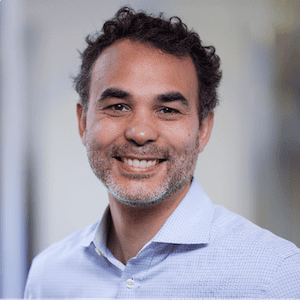-
Bridging the ‘Know-Do’ Gap: New initiative seeks to integrate digital health into national systems
There are more than 2,000 pilot eHealth and mHealth projects in low- and middle-income countries, but much confusion about how best to realize the potential of these technologies to transform health systems. HealthEnabled hopes to change that.
- Categories
- Health Care, Technology
-
Building Corridors for Shared Prosperity: Seven lessons from Intellecap, IFC on ‘what works’ in international expansion of inclusive businesses
IFC, in partnership with Intellecap, released a new report “Corridors for Shared Prosperity” at the Sankalp Africa Summit in Nairobi last week. The report is a repository of knowledge about “what works” in successful replication of businesses and presents a framework for systematic transfer. Eleven businesses across agriculture, health care and renewable energy that expanded from India to South Asia and Sub-Saharan Africa were identified for analysis.
- Categories
- Education
-
Premature Innovation: What happens when a social entrepreneur has a great business idea in a market that isn’t ready for it?
Mauricio Monjaras Cabañas founded GRIMA Biodiesel at the age of 21, a social enterprise that aimed to produce renewable fuel from castor beans. The fuel was touted as cheaper than diesel, better for the environment, and a boon to local farmers. But when he tried to launch his business, complications quickly set in. He discusses his struggles in this post, the latest in our series on social enterprise failures.
- Categories
- Agriculture, Energy, Environment
- Tags
- renewable energy
-
NexThought Monday – Why Exiting Our MFI was the Best Way to Ramp Up Impact
In 2009 Sammie Rayner co-founded a microfinance nonprofit called Lumana, which was designed to provide loans and financial services in rural Ghana. Four years later Lumana’s MFI operations were spun off in a deal with a Ghanian NGO. In discussing their decision to exit, she cautions nonprofits against getting too attached to the ongoing survival of their mission.
- Categories
- Agriculture
-
Twitter Top Ten – 2-8-15
We rooted through the Twitterverse again this week and emerged with some excellent nuggets. In fact, the only hard part of the exercise was – as usual – narrowing the list to 10.
- Categories
- Health Care
-
Weekly Roundup – 2/7/15: Debt and Forgiveness: A drastic solution to over-indebtedness among the poor
Seven years after a financial crisis caused in part by excess debt, all the world’s major economies have higher levels of borrowing than they did in 2007, said a report released this week. Meanwhile, one country has responded to excess debt among the poor by forcing lenders to forgive it. We discuss these developments, and some great financial inclusion news coming out of India, in this Roundup.
- Categories
- Agriculture
-
Power of the User: Lessons learned from mHealth usability testing and tips for your innovation
The Institute for Reproductive Health, working with iHub, has been doing research on its family planning products, focusing on the human element and the user experience. They compiled some lessons learned and tips for integrating usability testing to improve technology.
- Categories
- Health Care
-
The Technology Trade-off: Mobile tech boosts financial access but limits engagement. Can it also help build banking relationships?
Financial access is at an all-time high, and it’s growing fast. Yet account dormancy rates for the newly banked range from 60-90 percent. And though mobile technology has made more services scalable, it has also limited banks’ ability to build deeper relationships with their customers. But Juntos Finanzas believes mobile tech may also hold a solution to this problem.
- Categories
- Technology, Telecommunications










